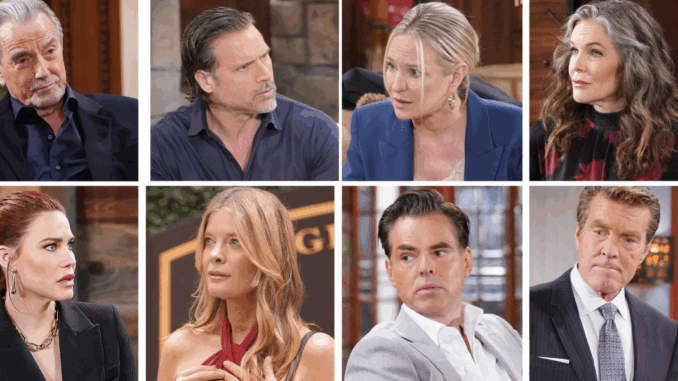
For over half a century, The Young and the Restless has defined daytime television — a world of ambition, betrayal, and romance set in the ever-stormy Genoa City. But in 2025, a growing chorus of longtime fans believes something essential has gone missing. The stories still twist and turn, yet the heart, they say, no longer beats the same.
A Legacy in Question
To understand the frustration, you have to understand the legacy. For decades, Y&R wasn’t just about who married whom or which company changed hands. It was about emotional truth — family, forgiveness, and the quiet moments between chaos. But today’s viewers, many of whom have watched since the ’80s and ’90s, feel the writing has drifted from its emotional roots toward something colder and mechanical.
Discussions across fan communities reveal a consistent theme: the show feels out of touch with its own past. The intimate conflicts that once defined Genoa City have been replaced by boardroom schemes and recycled feuds. “It used to make me cry,” one fan lamented online. “Now it just makes me check my phone.”
The Writing Debate
At the center of this unease stands head writer Josh Griffith, a veteran of daytime television whose recent creative direction has divided the fanbase. Critics of the current era argue that the show relies too heavily on filler scenes, dream sequences, and manufactured suspense that never pays off. They miss the human storytelling that once made Y&R stand apart — those moments of vulnerability, guilt, and quiet revelation that gave its characters dimension.
The accusation isn’t that the show has lost talent; it’s that it’s lost focus. Emotional continuity has been replaced with narrative convenience. A betrayal one week is forgotten the next. Relationships reset overnight. And for a soap that built its empire on consistency, that kind of storytelling feels like sacrilege.
Recasts, Departures, and Disconnection

Adding to the tension are frequent cast shake-ups that have left viewers disoriented. Fan favorites like Allison Lanier and Conner Floyd have exited the series, sometimes with little narrative closure. Meanwhile, new faces arrive abruptly, filling roles that long-time viewers feel no emotional connection to.
When the actors change faster than the storylines resolve, fans say, the emotional thread snaps — and the illusion of continuity collapses.
The controversy over recent recasts, particularly the debate surrounding the return of Cane Ashby with a new face, has become symbolic of the larger problem. Viewers don’t just watch for plot — they watch for people. And when a character no longer feels like the one they’ve known for years, no amount of exposition can repair that emotional breach.
When Nostalgia Becomes a Demand
Ironically, the same nostalgia that once sustained The Young and the Restless may now be what threatens it. Fans no longer ask for innovation; they beg for restoration. They want stories that honor the show’s legacy, that remember its moral compass — the compassion of Katherine Chancellor, the fire of Victor Newman, the dignity of Nikki’s survival.
Instead, they see a world of temporary conflicts and rapid resolutions. For a generation raised on slow burns and earned payoffs, that’s not enough. They want storylines that breathe again — not just spin.
The Soul of the Soap
If The Young and the Restless is suffering, it isn’t from a lack of actors or budget. It’s from a lack of rhythm. For decades, the show’s success came from the push and pull between the grand and the intimate — power balanced by vulnerability. In 2025, fans feel that balance has been lost. Every emotional note is loud, but few ring true.
Still, the passion in the fanbase suggests the story isn’t over. Even the harshest critics write with love, their anger a sign of deep investment. The loyalty is still there — they just need a reason to feel again.
For The Young and the Restless, that may be the clearest message of all: the audience doesn’t want spectacle. They want soul.